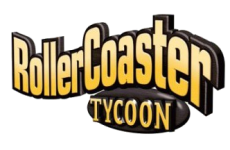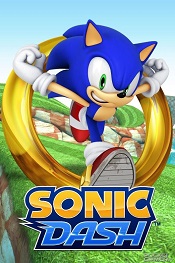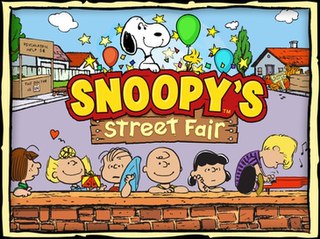
RollerCoaster Tycoon is a series of construction and management simulation games about building and managing an amusement park. Each game in the series challenges players with open-ended amusement park management and development, and allowing players to construct and customize their own unique roller coasters and other thrill rides.

Chris Sawyer's Locomotion is a video game designed and programmed by independent game developer Chris Sawyer, and published by Atari Interactive in September 2004. The game is a simulation game in which the player takes on the role of a transportation company manager, building transportation networks and managing the flow of goods and passengers in order to compete against rival companies. Sawyer independently developed the game over nine years from the 1990s as a "spiritual successor to Transport Tycoon", with the game featuring "fundamentally the same" gameplay but with "differences in detail, scale and presentation" to update and refine the features that Sawyer "wanted to get right" in its predecessor.

RollerCoaster Tycoon 3 is a 2004 construction and management simulation video game. It is the third installment in the RollerCoaster Tycoon series, and was developed by Frontier Developments and published by Atari Interactive. RollerCoaster Tycoon 3 places players in charge of managing amusement parks; rides can be built or demolished, terrain and scenery can be adjusted, and prices can be controlled to keep visitors happy.

Minigore is a 2009 survival horror action shooter game for iOS, developed by Mountain Sheep and published by Chillingo. On December 6, 2012, a sequel, Minigore 2, was released on multiple platforms. Minigore was not updated for iOS 11 and was removed from the App Store until returning in 2019 under publisher GameClub.

Jetpack Joyride is a side-scrolling endless runner action video game created by Halfbrick Studios. It was released for iOS devices on the App Store on September 1, 2011 and has been ported to other systems. It was released online as a Flash version on May 11, 2012; on Android on September 28; on PlayStation Portable on November 20 in North America and November 21 in Europe; on BlackBerry PlayBook on December 13, 2012; on PlayStation 3 and PlayStation Vita on December 21 in Europe and December 31 in North America; on BlackBerry 10 on March 6, 2013; and on Windows Phone 8 and Windows 8 on June 5. It was also released on PlayStation 4 on April 26, 2016. A mobile version using the keypad was released in 2021 for KaiOS devices.

DrawRace 2 is a racing video game developed by Ubisoft RedLynx and published by EA Chillingo. It was released September 1, 2011 for iOS devices, and serves as the sequel to DrawRace. It is played by drawing an ideal racing line on the game's screen with a finger. The car then follows this line during a race. The game was well received by critics, and holds a four stars rating and an average score of 88/100 at review aggregator Metacritic.

Feed Me Oil is a physics-based puzzle game developed by Russian studio HolyWaterGames for iOS, Android, and Windows Phone devices. The game was released on the iTunes App Store in June 2011 and Google Play in July 2012, by publisher Chillingo Ltd. The Windows Phone version of the game was published by Electronic Arts and released on the Windows Phone Store in April 2012. The game was featured as the iPhone Game of the Week, as well as the number-one paid app in the United States and other countries.

Final Fantasy All the Bravest was a video game in the Final Fantasy series developed by BitGroove and published by Square Enix. The game was released for iOS and Android mobile devices.

Sonic Dash is a 2013 endless runner mobile game developed by Hardlight and published by Japanese game studio Sega. It is Hardlight's second Sonic the Hedgehog game, the first being 2012's Sonic Jump. The game was released in March 2013 for iOS, November 2013 for Android, and December 2014 for Windows Phone and Windows, along with an arcade release in November 2015 as Sonic Dash Extreme. It was initially released as a paid application, but was made free-to-play a month after its iOS release.

One Epic Game is an endless runner video game developed and published by Czech company Grip Games. The game was released in July and August 2011 for PlayStation 3, PlayStation Portable, and PlayStation Vita as a PlayStation mini, with iOS and Android receiving ports the following year.

Jelly Splash is a match-three puzzle video game released by the developer Wooga on 15 August 2013 on iPad and iPhone. It was later released on Facebook and Android, as well as the Korean social network platform KakaoTalk in November 2013.

The Groove Coaster series is an iOS / Android and arcade rhythm game franchise developed by Matrix Software and published by Taito. The first Groove Coaster was released for iOS on July 28, 2011. This rhythm game follows a roller coaster type track on screen, where players must make the appropriate controller inputs. Like many rhythm games, a life bar is attached to the game play. Players gain or lose points on the bar depending on the input timings.

Air Mail is an iOS game developed by British studio Chillingo Ltd and released on May 24, 2012.

Whale Trail is a mobile game developed by British software company Ustwo and released in October 2011. The game follows Willow the Whale as he flies through the sky, trying to get away from Baron von Barry, the squid-like antagonist. Whale Trail is an endless runner game, where the player tries to collect bubbles to allow them to keep flying, while avoiding clouds. The game cost over £150,000 to develop and went through months of design work and beta-testing.

Hook Champ is an iOS game developed by American studio Rocketcat Games and released on October 4, 2009. A sequel, Super QuickHook, was released on June 17, 2010, while Hook Worlds was released on December 16, 2010.

Alto's Adventure is a 2015 endless runner snowboarding video game developed by Team Alto and published by Snowman (iOS) and Noodlecake Studios (Android). The player-character automatically moves to the right of the screen through procedurally generated landscapes. The player taps the screen to jump and perform tricks (backflips), and works towards goals, competitive high scores, and upgrades. Snowman, a Toronto-based, three-person indie development team, previously worked on productivity apps before Alto's Adventure. The game was made to emulate the ethereal atmosphere of snowboarding, and was inspired by Ski Safari (2012), Tiny Wings (2012), Jetpack Joyride (2011), Journey (2012), Monument Valley (2014), Tony Hawk's Pro Skater 2 (2000), and Windosill (2009).

Terminator Genisys: Future War is a mobile MMO strategy video game created by Plarium in cooperation with Skydance Media. The events of the game take place in a post-apocalyptic future years after the events of the Terminator Genisys film. Originally developed as a sequel film, the game was released on May 18, 2017 on the iOS App Store and Google Play. It uses Plarium's usual model of free to play, with some in-game features and upgrades available to purchase.

Crash Bandicoot: On the Run! was a mobile endless runner game developed and published by King, that was initially soft launched in Malaysia in 2020 and was released worldwide in 2021. The game showcased the Crash Bandicoot series' characters and fictional universe in the context of a runner game. Players controlled Crash or his sister Coco, running through levels and defeating enemies using weaponry crafted from collectible ingredients. Players could use cosmetic skins to increase their amount of gathered resources and could engage in asynchronous multiplayer gameplay by competing for survival in procedurally generated levels. Several updates were installed throughout 2021, often in the form of new levels, bosses, and cosmetic skins.

Snoopy's Street Fair is a freemium city-building video game developed by Beeline Interactive and published by Capcom for iOS and Android devices, first released in November 2011. Based on the Peanuts comics and TV-series by Charles M. Schulz, the game sees the player as Charlie Brown, who starts a street fair to earn money for uniforms for a baseball game in New York City.

Diggin' Dogs is a 2012 casual puzzle video game developed by Soap Creative and published by Chillingo for iOS devices. The player must guide dogs to the end of a level by swiping the screen to dig through dirt and tilting the device left or right using accelerometer-based motion controls to move dogs and items. Diggin' Dogs received "generally favorable reviews", according to review aggregator Metacritic, and was compared by critics to Where's My Water?, a game with a similar digging mechanic, although Diggin' Dogs was in development before it released.

















